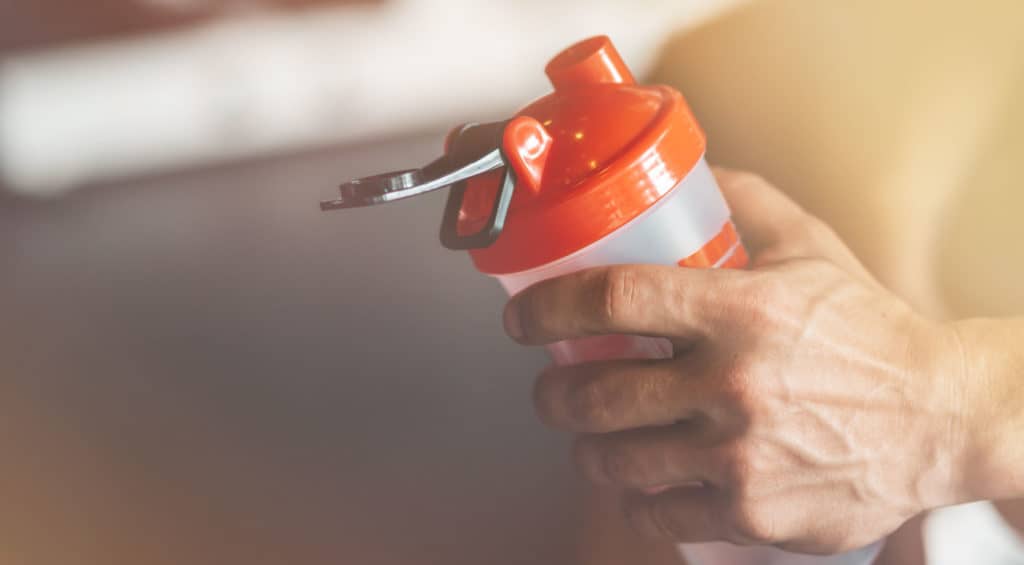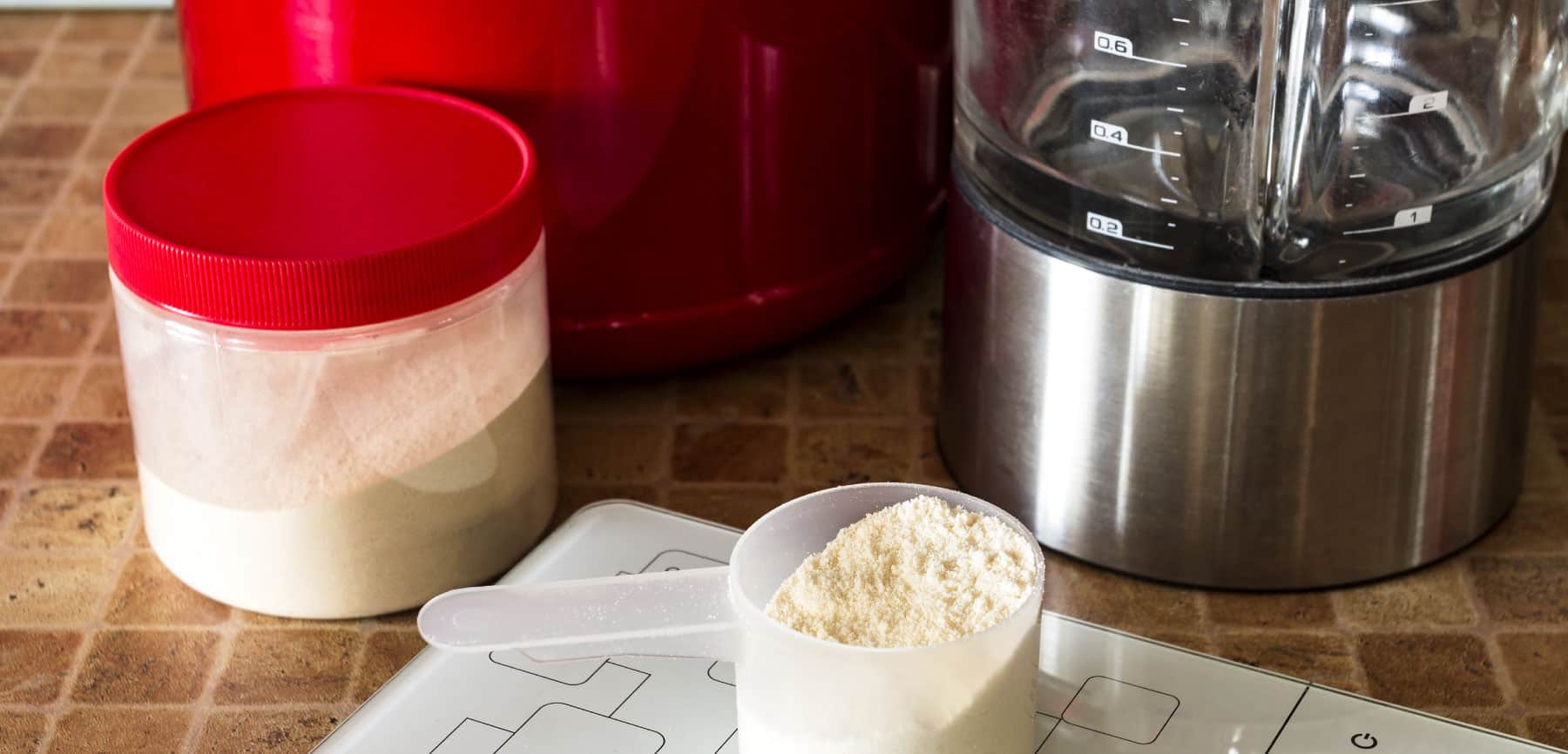As the Mayo Clinic notes, active individuals and athletes require precise nutrients before a workout to perform their best. In particular, complex carbohydrates and protein (amino acids) are vital components of a pre-workout meal. They give your body the nutrients necessary to synthesize muscle tissue and replenish muscle glycogen.
However, a pre-workout meal is only part of the equation. Taking a pre-workout supplement can give you a burst of energy, focus, and motivation to push yourself in the gym.
Pre-workouts are ergogenic products that provide ingredients to help you achieve peak athletic performance, mainly if you train at higher intensities.
After taking a pre-workout supplement, the effects typically become noticeable within an hour or so. Hence, you need to be conscientious of the timing of your pre-workout supplement use.
Let’s break down some of the critical aspects that impact how long pre-workout supplements last and when they start to work.
What Goes Into the Pre-Workout Supplement Matters

Not all pre-workout supplements are the same. Some have a much stronger formula than others. Some have a lot of sugar in them, which isn’t always ideal. Others have a lot of caffeine or stimulants, which can also be problematic. It is imperative to choose a pre-workout supplement that provides a range of evidence-based ingredients. Due to the immense diversity among pre-workout formulas, there isn’t much research behind these supplements. However, there are plenty of studies on the individual ingredients found in popular pre-workout supplements, such as:
- Creatine monohydrate
- Caffeine
- Branch chain amino acids (BCAAs)
- Taurine
- B vitamins
- L-citrulline and L-arginine
- Beta-alanine
- Betaine anhydrous
If your pre-workout supplement contains proper doses of (most of) these ingredients, it will likely enhance your mental and physical performance for at least two hours, if not longer.
However, the efficacy of a pre-workout and its duration of action may diminish over time for several reasons, especially if it contains high doses of caffeine and other stimulants.
Caffeine Tolerance: How It Impacts Pre-Workout Efficacy
Consider that many people start their day with a strong cup (or two) of coffee. Then, the mid-afternoon slump sets in at the office so they go back for another shot of caffeinated courage to power through the rest of the workday.
So, what happens when you do that habitually for weeks, months, or years? Well, you develop tolerance to the stimulating effects of caffeine. In many ways, this can lead to a vicious cycle where you become dependent on caffeine just to “feel normal.”
Generally speaking, your pre-workout supplement is going to have caffeine in it. There are a few available without caffeine, but they are the exception to the rule. If you’re the type to regularly drink coffee, energy drinks, or other caffeinated beverages, chances are a pre-workout will “feel” quite similar to a strong kick of caffeine. However, if you have a high tolerance to caffeine, you might not notice much of an effect from a pre-workout supplement.
Keep in mind that this does not mean the remaining ingredients in the formula aren’t working. Frankly, if you’re taking a pre-workout just to get a caffeine high, you should probably save your money and stick to coffee.
Your Hydration and Nutrition

Hydration plays a major role in how well you perform, both physically and mentally. After all, you’re not going to last long on the playing field or in the gym if you’re cramping up due to dehydration.
Recall from above that many pre-workouts contain caffeine, a diuretic. If you’re not drinking plenty of fluids throughout the day, taking a pre-workout will only worsen your hydration status. Pre-workout hydration starts long before that, though. As Active.com notes, you really need to start hydrating the day before your workout (even in the afternoon and evening).
And of course, your overall nutrition matters as well. If you eat a diet heavy in saturated fats and sugary foods, how long a pre-workout lasts should be the least of your concerns. Eating a healthy diet is imperative if you want results in the gym, and it will only help when it comes time to delve into pre-workout supplements.
Your Fatigue Levels
Other key factors influencing how long a pre-workout supplement lasts are your recovery and fatigue levels. If you’re not getting adequate rest, you won’t recover fully from exercise.
Moreover, the effects of a pre-workout supplement won’t last long if you’re running on a short night of sleep and can barely keep your eyes open. Hence, athletes and gym-goers should never overlook the importance of sleep, which is well-known to impact physical and mental performance.
You also do not want to overdo your workouts. If your body and muscles are exceedingly exhausted, they are telling you to back off the training a bit.
A research review reported in Sports Medicine provides some clarity on this topic: When a person exercises, it involves repeated, forceful contraction of the muscles. This requires ATP (cellular energy) to generate muscular power and force, along with heat (calorie burn). This process depletes the body’s natural energy reserves (i.e., nutrients and creatine), and eventually you “gas out.”
In short, the more you work out, the more nourishment your body needs for optimal performance.
Your Body Stature

A pre-workout supplement provides a certain dose of multiple performance-enhancing ingredients. A person that is taller, heavier, or has more muscle mass is going to need larger doses to reach the same level of efficacy as someone who is thinner or smaller. This is why doses are almost always given proportionate to a subject’s body weight in research (e.g., 40 mg of ingredient per kg of body weight).
However, it’s not practical for most people to try and find a pre-workout that has the exact dose ratios of ingredients that fit their specific body weight. Thus, it’s best to stick with the recommendations of the manufacturer to avoid adverse effects from taking too much pre-workout. In most cases, you should start with half the recommended dose to assess your tolerance. You can always take another half serving if you feel like the effects are lacking.
In addition to your physical size, age also matters. As you get older, your metabolism tends to slow down as part of the natural aging process. Those who are younger will metabolize ingredients quicker, meaning they need more of them to have a beneficial effect.
As a result, these factors impact how long pre-workout ingredients stay in your system and how long the effects last.
What Can You Expect from Pre-Workout Supplements?
Generally speaking, most people can expect their pre-workout supplement to last between one and three hours. Keep in mind that some people are very sensitive to the ingredients in these products.
For example, some pre-workout formulas contain the equivalent of nearly four cups of coffee. If you’re sensitive to the effects of caffeine, high doses can lead to a jittery feeling, anxiety, and heart palpitations. This is one key reason not to take more than the recommended amount and to know your caffeine tolerance.
How Do You Know If a Pre-Workout Is Working?

Most of the time, a healthy person will not notice an obvious change in themselves when the pre-workout supplement starts to work. Others will feel differences within minutes, especially if you are a bit more sensitive to caffeine and other ingredients that produce perceivable effects, like beta-alanine “tingles.”
Some of the most noticeable acute changes you might experience from a pre-workout include:
- Increased focus and motivation, largely due to the caffeine or stimulants and their effects on the brain.
- Enhanced strength and endurance, which should gradually become more pronounced over time.
- Tingling (Paraesthesia): Beta-alanine, a common pre-workout ingredient, is well-known to cause an innocuous side effect called paraesthesia, a sensation that your skin is tingling. Don’t be alarmed if you experience this effect after taking a pre-workout with beta-alanine; if anything, it’s just reassurance that the formula is working. The tingling effects also become less intense the longer you take beta-alanine, so stay consistent!
Can You Get Your Pre-Workout to Last Longer?

Most people will want their pre-workout supplement to last as long as possible throughout their workout. There are ways to naturally increase how long a pre-workout supplement lasts, including:
- Drinking plenty of water throughout the day to ensure you’re well-hydrated.
- Eating well-balanced meals prior to your workout, including whole grains, lean protein, healthy fat sources, and fruits and vegetables.
- Limiting caffeine use during other times of the day. This will keep your tolerance down so you respond better to your pre-workout (assuming it’s not stim-free).
- Getting enough sleep. Waking up tired means you are not getting enough quality sleep. This will negatively impact your performance and how long a pre-workout supplement lasts.
- Taking your pre-workout supplement at the right time—about 30 minutes prior to your workout on a fairly empty stomach. If you have a stomach full of food, the effects of the pre-workout will take longer to kick in.
How Long Does a Pre-Workout Supplement Remain in Your System?
To reiterate, the effects of a pre-workout supplement typically last between 2 to 3 hours. However, the supplement formulation and the factors discussed above will ultimately dictate how long a pre-workout supplement remains in your system (which, by extension, determines how long it will last).
The main thing to note is that the half-life of caffeine is about 5 to 6 hours, and its duration of psychogenic action is about half that. Hence, most people “feel” the effects of a pre-workout supplement for about 2 to 3 hours (assuming it provides a moderate dose of caffeine).
Don’t Over Do It

While taking a pre-workout supplement is worthwhile for most active people, especially those who want to see muscle growth, it’s necessary to moderate your use of these products. This is especially important for those who are taking other supplements that contain a significant amount of stimulants or other psychoactive substances, such as fat burners.
When it comes to supplements, less is generally more. You’re better off taking one or two supplements that are properly dosed with evidence-based ingredients than using a bunch of poorly formulated products.
In nearly all cases, the major determinants of how long a pre-workout supplement lasts are its active ingredient profile and how tolerant you are to any stimulants it contains.
Lastly, ensure that you use a pre-workout formulated with the right type and amount of ingredients to support your goal, such as building muscle, burning fat, or increasing athletic performance. All of these factors play a role in your results.
